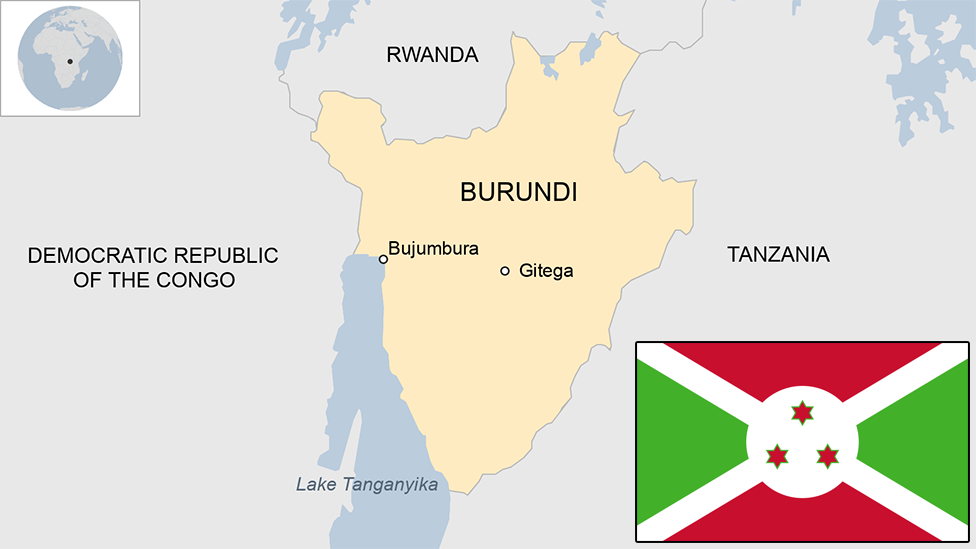Burundi's President Pierre Nkurunziza in profile
- Published
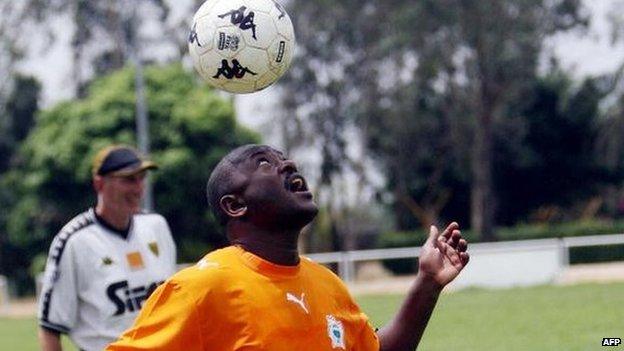
President Nkurunziza, who qualified as a football coach, has his own team called Hallelujah FC
Pierre Nkurunziza, who has caused controversy with his election for a third term as president, has governed Burundi for nearly 10 years.
Critics of the 51-year-old, who came to power after a civil war which left 300,000 dead, said he should not run again for office as that would be unconstitutional.
His supporters feel he was justified as he was elected by parliament in 2005 - not voters - a view upheld by Burundi's Constitutional Court.
And the former rebel leader takes pride in the fact that his administration has brought peace to Burundi.
It is this image that he is keen to portray - a man of the people working to rebuild the country, one of the poorest in the world.
It has been reported, external that diplomats arriving for official meetings with Mr Nkurunziza have been whisked away from the capital, Bujumbura, into the countryside, where they find the president digging in the fields with local farmers.
In fact his enthusiasm for planting avocado trees is so well known that many Burundians have renamed the popular green fruit "amaPeter" after him.
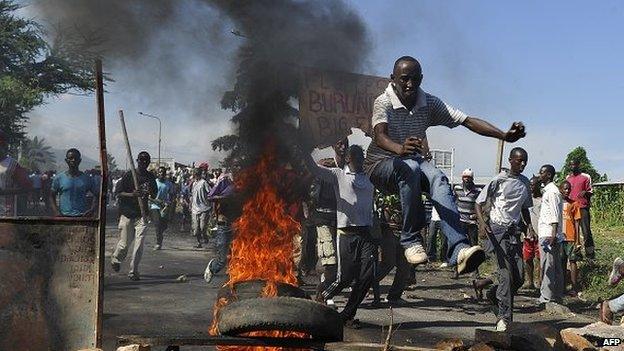
There have been demonstrations in the capital against Mr Nkurunziza's third-term
"The man's simplicity is remarkable, and he always draws attention, mingling with village people in the remote rural areas where he spends most of his time," his official biography, external on the Burundian government website says.
This has made him more popular in rural areas, but not in the capital, where most of the opposition resides.
Born-again Christian
Before the civil war, Mr Nkurunziza, who had graduated in sports education, was a teacher and assistant lecturer at the University of Burundi.
He also coached the army football team, Muzinga, as well as Union Sporting, a Burundian first division team in the 1990s.
He now has his own side, Hallelujah FC, where "he plays as a striker and scores regularly", his biography says.
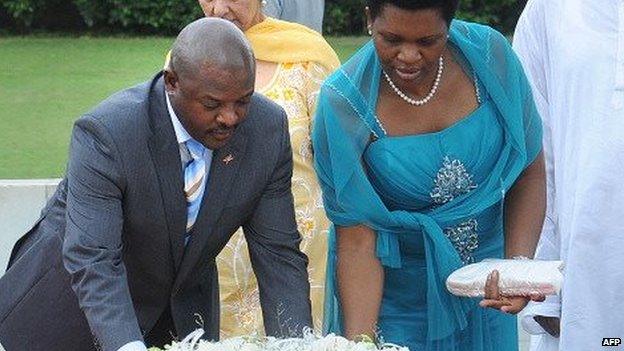
Pierre Nkurunziza and his wife Denise have five children
The name of the team also indicates one of his other great passions: His Christian faith.
His father, a former governor who was killed in the 1972 massacre of ethnic Hutus, was Catholic and his mother Anglican.
Now a born-again Christian, the father of five never travels without his own football team and a choir, where he combines matches against local team with evangelical prayer sessions, according to the AFP news agency.
'Dictator'
He and his wife Denise were once reported to have washed the feet of some of those among the crowd.
It is not only the people who the president believes have put their faith in him.
"Mr Nkurunziza indeed believes he is president by divine will, and he therefore organises his life and government around these values," says presidential spokesman Willy Nyamitwe, external.
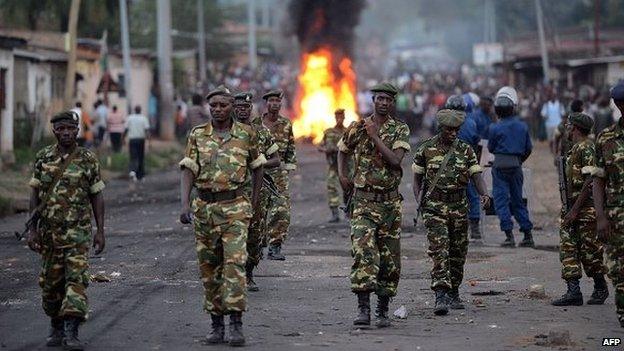
Burundi's army is now ethnically mixed - as stipulated by the constitution adopted as part of the peace process
His critics, who include about 40 opposition parties as well as human rights groups, paint a somewhat different picture of him.
They accuse him of being a dictator who refuses to give up power.
This perception grew after Mr Nkurunziza decided to run for a third term, rejecting pressure from protesters and foreign governments to step down.
Scores of people have been killed in protests since he announced his re-election bid in April, and more than 100,000 have fled to neighbouring states, raising fears that Burundi could descend into conflict again.
Mr Nkurunziza survived a coup attempt in May when former army loyalist Godefroid Niyombare led the attempt to overthrow him.
Mr Nkurunziza's forces crushed the coup bid, and the opposition says repression has intensified, making July's elections neither free nor fair.
Death sentence
UN human rights chief Zeid Raad al-Hussein has raised particular concern about Imbonerakure, a youth group allied with Mr Nkurunziza.
It is suspected of carrying out summary executions, tortures and beatings, and "could tip an already extremely tense situation over the edge," he has said.
The Hutu CNDD-FDD rebel group that Mr Nkurunziza led during the civil war - sparked by the killing of Hutu President Melchoir Ndadaye in 1993 - was responsible for several atrocities.
Burundi's President Nkurunziza's wish for a third term
These included several ambushes along major roads, killing many travellers, including Tutsis.
He took up arms in a bid to end the long-standing dominance of the country by the minority Tutsi community.
Mr Nkurunziza was sentenced to death in absentia by a Burundian court in 1998 for laying land mines, but received an amnesty under the peace accord that ended the fighting.
Last year, he tried and failed to change the constitution, which limits the powers of his CNDD-FDD party by guaranteeing positions for the minority Tutsi group in all government institutions.
His critics say this stands at odds with his public stance that he wants to overcome the ethnic tensions that led to the civil war.
- Published16 June 2014

- Published31 July 2023
